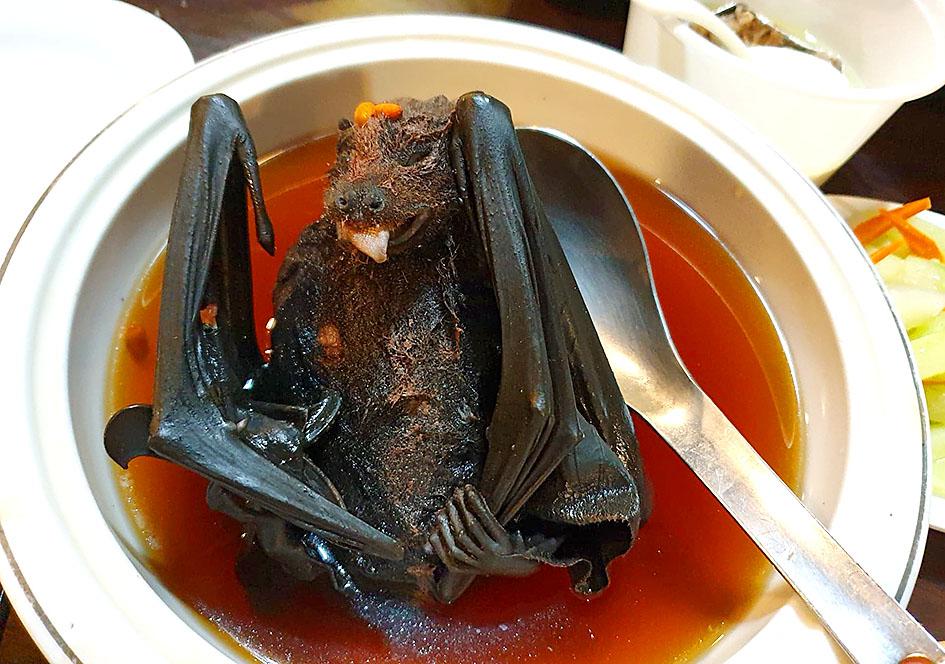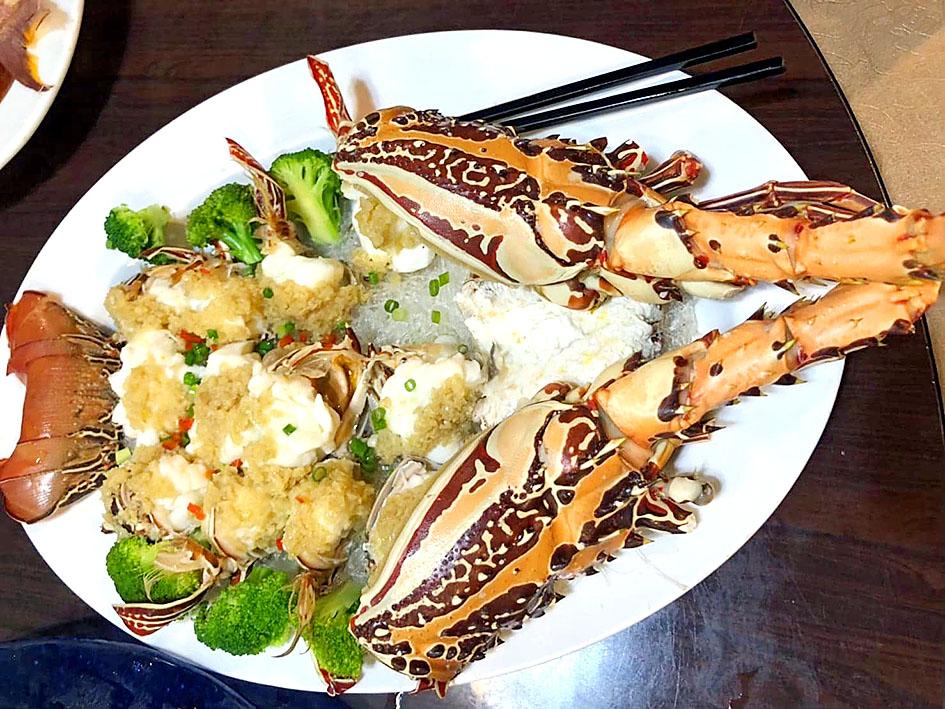As of the second week of April, just a handful of countries have yet to report cases of the novel coronavirus. One of them is Palau, a Pacific island chain that has had diplomatic relations with Taiwan since 1999.
In early March, when a newly-arrived US citizen showed symptoms of COVID-19, doctors in Taiwan used telemedicine technology to help Palauan physicians take samples from the patient. These were flown to Taiwan for testing; the results were negative.
Palau might so far have evaded a health crisis, but its tourism-driven economy can’t avoid other consequences of the pandemic.

Photo: Katy Hui-wen Hung
“We noticed the impact of COVID-19 very early on, because lots of tourists canceled their trips to Palau. Also, a lot of expatriates left the country. It’s effected nearly every part of the economy, because so many businesses rely on tourism,” says Tina Cheng (鄭欣庭), who helps her parents run 7-EAT Restaurant (美人魚餐廳), one of the most expensive restaurants in Koror, Palau’s largest city. Cheng’s father became 7-EAT’s manager in 2010; the boss is Palauan.
“To reduce expenses, we’ve cut down our hours of operation,” says Cheng, who says that the restaurant is also adjusting its menu to make it more delivery-friendly. So far, spicy fried chicken and sweet and sour pork, both served with steamed rice, have proved to be popular take away items with locals customers.
“Right now, we don’t worry about getting the ingredients we need, but if shipping is disrupted, there will be a problem,” she adds.

Photos: Katy Hui-wen Hung
In the past, 7-EAT catered mainly to tourists from Taiwan and China, as well as other non-locals. The menu includes lots of seafood, but Taiwanese diners especially liked a crocodile dish in which the meat is cooked the same way as Dongpo pork (東坡肉), and not just for its taste. Certain parts of the crocodile’s anatomy, such as palms, are rich in collagen — a natural beauty product that enhances skin elasticity and reduces wrinkles.
Gonzo gourmands sometimes ordered a dish now steeped in notoriety: A soup made with ginger and goji berries, with protein in the form of a stewed fruit bat. Earlier this year, amid speculation that the coronavirus originated in bats, photos and video clips showing people eating bats have been circulating online. Some of these images came not from China — as many people assumed — but from Palau, where 7-EAT wasn’t the only restaurant to offer an iteration of a traditional local delicacy.
Cheng says, from now on, tourists will be too scared to order bat soup. But she points out that locals are still eating it.
“Palauans have been eating bat soup for years, and never suffering any sicknesses as a result,” Cheng says.

Jacques Poissant’s suffering stopped the day he asked his daughter if it would be “cowardly to ask to be helped to die.” The retired Canadian insurance adviser was 93, and “was wasting away” after a long battle with prostate cancer. “He no longer had any zest for life,” Josee Poissant said. Last year her mother made the same choice at 96 when she realized she would not be getting out of hospital. She died surrounded by her children and their partners listening to the music she loved. “She was at peace. She sang until she went to sleep.” Josee Poissant remembers it as a beautiful

Before the last section of the round-the-island railway was electrified, one old blue train still chugged back and forth between Pingtung County’s Fangliao (枋寮) and Taitung (台東) stations once a day. It was so slow, was so hot (it had no air conditioning) and covered such a short distance, that the low fare still failed to attract many riders. This relic of the past was finally retired when the South Link Line was fully electrified on Dec. 23, 2020. A wave of nostalgia surrounded the termination of the Ordinary Train service, as these train carriages had been in use for decades

Lori Sepich smoked for years and sometimes skipped taking her blood pressure medicine. But she never thought she’d have a heart attack. The possibility “just wasn’t registering with me,” said the 64-year-old from Memphis, Tennessee, who suffered two of them 13 years apart. She’s far from alone. More than 60 million women in the US live with cardiovascular disease, which includes heart disease as well as stroke, heart failure and atrial fibrillation. And despite the myth that heart attacks mostly strike men, women are vulnerable too. Overall in the US, 1 in 5 women dies of cardiovascular disease each year, 37,000 of them

March 2 to March 8 Gunfire rang out along the shore of the frontline island of Lieyu (烈嶼) on a foggy afternoon on March 7, 1987. By the time it was over, about 20 unarmed Vietnamese refugees — men, women, elderly and children — were dead. They were hastily buried, followed by decades of silence. Months later, opposition politicians and journalists tried to uncover what had happened, but conflicting accounts only deepened the confusion. One version suggested that government troops had mistakenly killed their own operatives attempting to return home from Vietnam. The military maintained that the